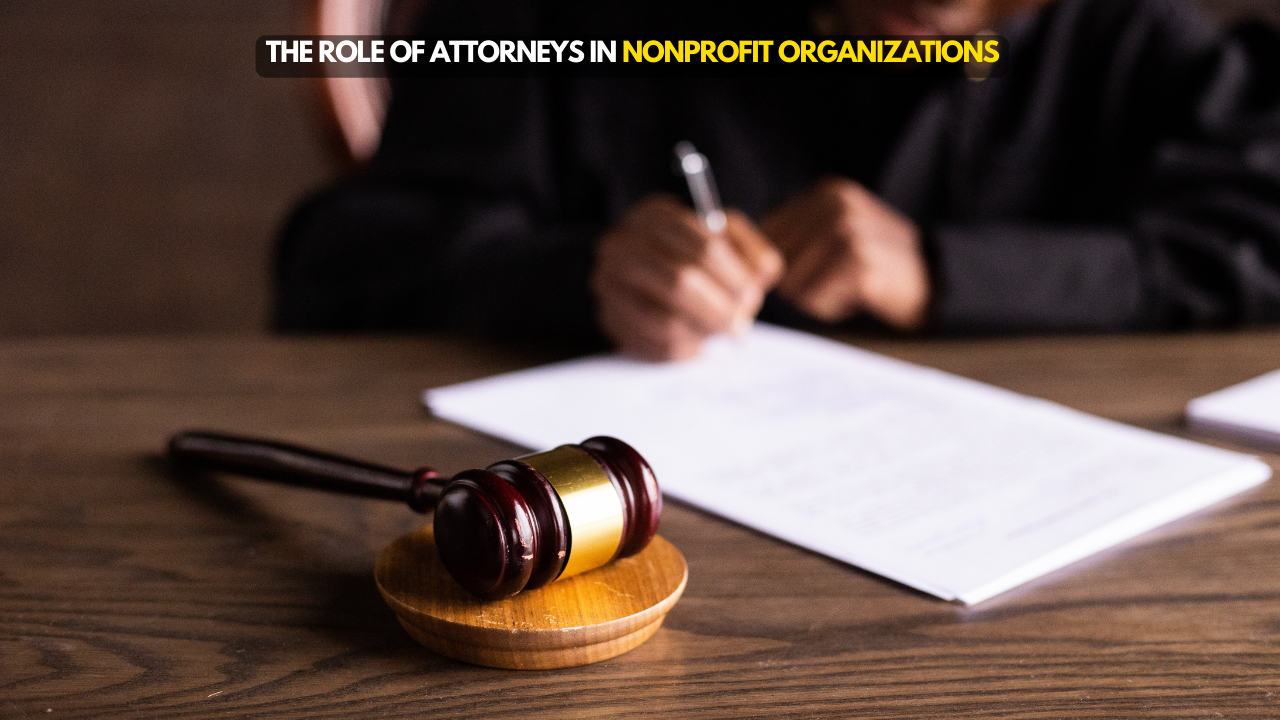Attorneys play a critical role in the operation and success of nonprofit organizations. These legal professionals provide valuable guidance, support, and expertise to ensure that nonprofit organizations comply with legal regulations, navigate complex issues, and achieve their missions effectively. The multifaceted responsibilities of attorneys in nonprofit organizations encompass legal compliance, governance, contracts, advocacy, and more.
- Legal Compliance: Nonprofit organizations must adhere to numerous legal regulations at federal, state, and local levels. Attorneys help nonprofits understand and navigate these laws, including tax regulations under the Internal Revenue Code. They assist in obtaining and maintaining tax-exempt status, ensuring proper reporting, and complying with fundraising and lobbying restrictions.
- Governance: Attorneys aid in establishing and maintaining effective governance structures within nonprofit organizations. They assist in drafting and reviewing bylaws, articles of incorporation, and other foundational documents. Attorneys also guide organizations in structuring their boards of directors, committees, and leadership roles to ensure accountability and transparency.
- Contracts and Agreements: Nonprofits engage in a range of contracts and agreements, from vendor relationships to collaborations. Attorneys draft, review, and negotiate these contracts to protect the organization’s interests and ensure that terms align with its mission and values. This includes employment contracts, service agreements, leases, and partnerships.
- Risk Management: Attorneys help nonprofits identify and manage legal risks associated with their activities. They offer guidance on liability issues, insurance coverage, and ways to mitigate potential legal disputes. Attorneys also provide advice on managing risks related to intellectual property, data privacy, and cybersecurity.
- Fundraising and Compliance: Attorneys assist nonprofits in understanding the legal implications of fundraising activities. They ensure compliance with regulations governing charitable solicitations, donor acknowledgments, and grant applications. Attorneys also advise on cause-related marketing campaigns and charitable gaming activities.
- Advocacy and Lobbying: Nonprofits often engage in advocacy and lobbying efforts to influence public policy. Attorneys help organizations navigate the legal boundaries of such activities, ensuring they comply with tax-exempt status requirements and lobbying disclosure laws.
- Employment Law: Attorneys guide nonprofits through employment-related legal matters, including hiring, terminations, workplace policies, and compliance with employment laws. They help prevent and address issues related to discrimination, harassment, and wage and hour regulations.
- Intellectual Property: Attorneys protect nonprofits’ intellectual property, such as trademarks, copyrights, and patents. They advise on licensing agreements, usage rights, and strategies to safeguard the organization’s brand and creative assets.
- Mergers and Dissolutions: In the case of mergers, acquisitions, or dissolution, attorneys guide nonprofits through the legal processes involved. They ensure that these transactions adhere to legal requirements and protect the interests of the organization and its stakeholders.
- Litigation and Dispute Resolution: While nonprofits strive to avoid legal disputes, attorneys provide representation if litigation arises. They represent organizations in court and engage in alternative dispute resolution methods to resolve conflicts efficiently.
In conclusion, attorneys play a vital role in the success of nonprofit organizations by providing legal expertise across a wide range of areas. Their guidance ensures that nonprofits operate within the bounds of the law, effectively manage risks, and fulfill their missions while maintaining transparency and accountability.

